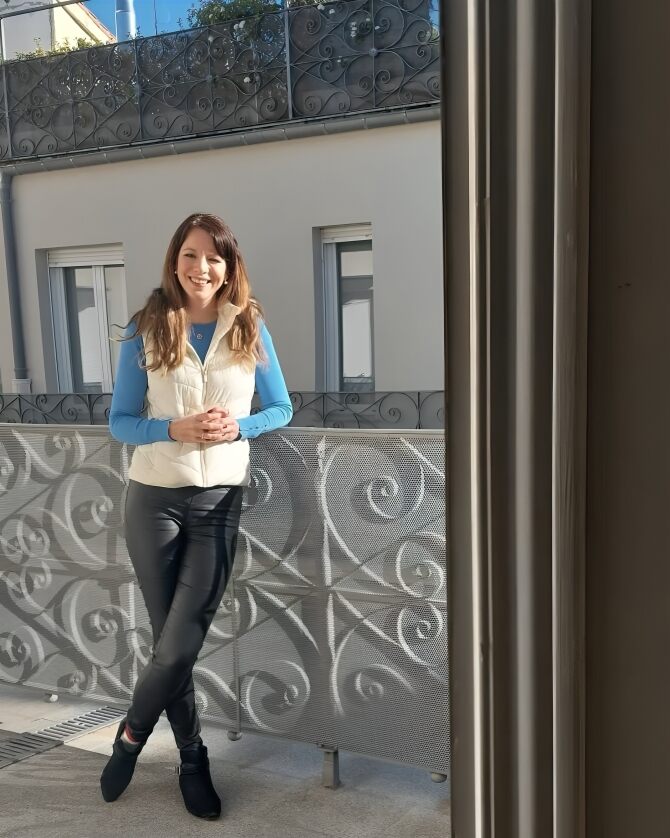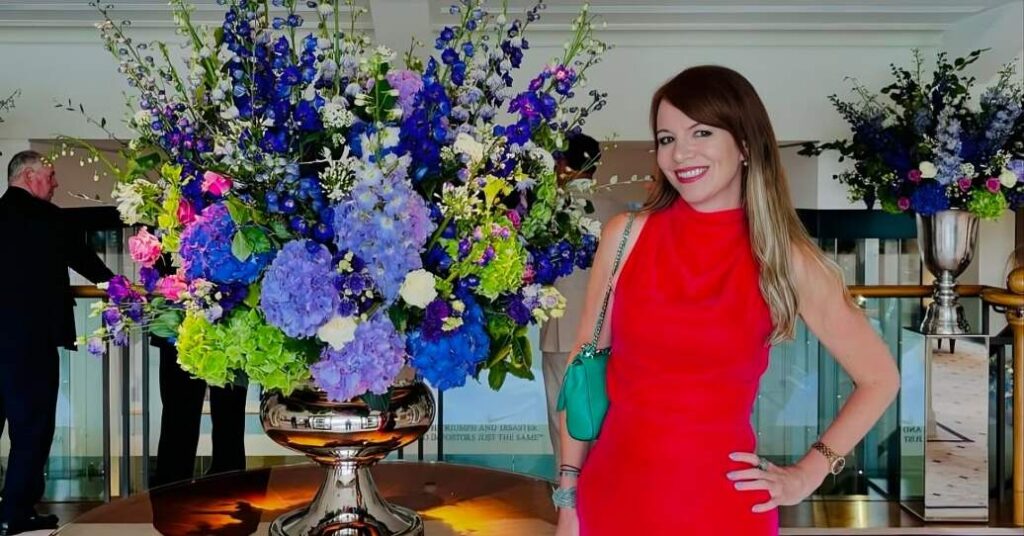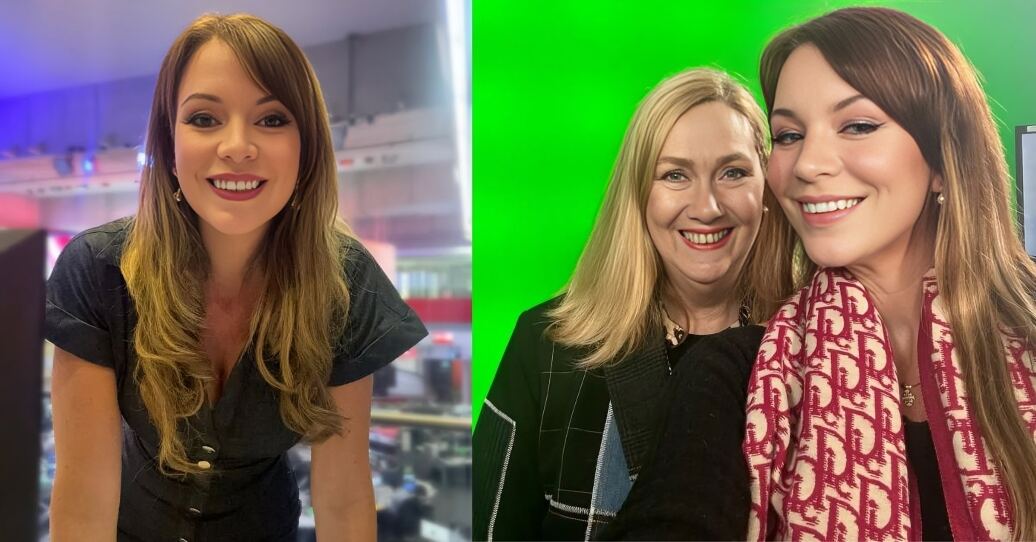In today’s world, curiosity spreads faster than facts. The phrase “Elizabeth Rizzini disability” has made waves online, sparking endless discussions and wild guesses.
People love stories, especially when they involve familiar faces from TV. But as the line between genuine interest and speculation blurs, it’s easy for misinformation to grow unchecked.
This article unpacks where these rumors came from, why they exist, and what they say about public curiosity, media ethics, and disability representation. More importantly, it reminds us that behind every screen is a real person deserving of respect.
Elizabeth Rizzini Bio/Wiki
| Category | Details |
|---|---|
| Full Name | Elizabeth Rizzini |
| Profession | BBC Weather Presenter and Journalist |
| Organization | BBC London, BBC News |
| Nationality | British |
| Location | London, United Kingdom |
| Years Active | 2010 – Present |
| Known For | Presenting weather reports on BBC London and BBC Breakfast |
| Education | Background in Environmental Science and Broadcast Journalism |
| Personal Life | Mother and respected Public Figure |
| Recent Interest | Public curiosity surrounding Elizabeth Rizzini disability rumours |
Who Is Elizabeth Rizzini? A Brief Biography

Elizabeth Rizzini is a well-known BBC Weather Presenter, recognized for her calm delivery and professional demeanor. Born and raised in the United Kingdom, she built her career in broadcast journalism through hard work, persistence, and passion for science.
Her career began after joining the Met Office, where she developed an understanding of meteorology and climate systems. Over the years, she transitioned into broadcasting and became one of the respected voices on BBC London, delivering accurate and engaging forecasts to millions.
Outside of work, Elizabeth is known as a mother, communicator, and a dedicated professional who values her privacy. Her life serves as an example of how a public figure can stay grounded while maintaining a strong professional reputation.
Elizabeth Rizzini’s Career at BBC Weather

Rizzini joined the BBC Weather team with a strong background in science communication. Her ability to explain complex weather phenomena in clear and relatable language quickly made her a trusted broadcaster.
Over the years, she has covered significant weather events such as heatwaves, floods, and climate-related discussions that affected millions across London and the United Kingdom. Viewers admire her on-screen professionalism and her talent for connecting with audiences while keeping forecasts informative and concise.
Her colleagues at BBC News and BBC Breakfast describe her as both meticulous and approachable — traits that perfectly suit a television personality constantly in the public eye.
The Origins of Elizabeth Rizzini Disability Rumours
The Elizabeth Rizzini disability rumours began without any factual foundation. Somewhere between social media threads and gossip blogs, whispers turned into assumptions.
One possible cause for the confusion comes from her association with Frank Gardner, her partner, who indeed uses a wheelchair due to a past injury. However, this detail about him appears to have been misinterpreted or misattributed to her.
Once social media picks up on a rumour, it spreads like wildfire. A single post on a forum or Facebook group can spiral into multiple reposts on Twitter, Reddit, and clickbait sites. Before long, speculation replaces truth — a classic example of misinformation spread in the digital era.
Separating Facts from Speculation
Let’s set the record straight.
There is no verified evidence that Elizabeth Rizzini has any disability. She has never spoken publicly about having a medical condition, nor have credible sources or professional statements confirmed one.
Yet, silence often fuels curiosity. In the absence of clarity, people fill the void with their own assumptions. But in reality, choosing privacy doesn’t mean hiding something — it simply means setting personal boundaries.
Fact vs. Fiction Table
| Rumour | Reality |
|---|---|
| Elizabeth Rizzini has a disability | No credible proof or statement confirms this |
| BBC confirmed her health condition | False — BBC has never issued such information |
| She avoids public appearances | False — she regularly appears on BBC broadcasts |
| Rumours started on social media | True — likely from speculation threads and online chatter |
This proves one thing: speculation can distort even the simplest truths.
How Media Handles Disability Topics
Media has immense power in shaping how society views disability. However, not all outlets use that power responsibly. Some mainstream platforms follow ethical journalism, while others chase clickbait headlines to boost engagement.
The responsible approach involves:
- Fact-checking before publishing.
- Respecting an individual’s privacy rights.
- Avoiding medical speculation without consent.
- Promoting accurate representation of disability instead of stereotypes.
Unfortunately, gossip sites often ignore these ethics. They use emotional headlines, framing innocent people in misleading ways.
This not only damages reputations but also feeds harmful narratives about disability.
A similar pattern can be seen in Jeremy Fragrance fragrance journey, where online discussions sometimes blur the line between admiration and sensationalism.
Public Fascination with Celebrity Health
Why are people so fascinated by the health of celebrities like Elizabeth Rizzini?
The answer lies in psychology. We see celebrities as reflections of ourselves — larger-than-life versions of ordinary people.
When rumours surface about their health, it triggers curiosity and empathy, but also a strange sense of entitlement.
People want to “know the truth,” even if it’s none of their business.
This curiosity drives social media trends, forum discussions, and viral posts that often ignore real consequences — similar to the public interest seen in Serena Winters husband biography, where fans dig deep into her personal life.
However, when speculation replaces compassion, it crosses the line from interest to intrusion.
Elizabeth Rizzini and Privacy in the Public Eye
As a public figure, Elizabeth Rizzini handles her fame with professionalism and grace. She rarely discusses her private life — and that’s her right. Privacy isn’t secrecy; it’s a boundary.
Despite being in the spotlight, she continues to focus on her work and family without indulging in online gossip. Her restraint highlights the importance of separating public image from personal space, especially in today’s culture of constant exposure.
By maintaining her composure, she sets a quiet example for other media personalities who struggle to protect their privacy in the face of relentless public curiosity.
Representation of Disability in Broadcasting
Even though Elizabeth herself doesn’t have a disability, her story opens an important discussion about disability representation in media.
The broadcasting world has long faced criticism for underrepresenting or stereotyping people with disabilities.
While there’s progress, more inclusion is needed — not as tokenism but as equal opportunity.
A good example of balanced and authentic representation can be seen in Maria Stephanos journalism career, where professionalism and genuine storytelling reflect the kind of inclusivity modern media should aim for.
Key steps for improvement include:
- Hiring more presenters with disabilities.
- Creating inclusive content that reflects real experiences.
- Avoiding exaggerated portrayals of disability as either “tragic” or “heroic.”
- Promoting accessibility across studios and on-screen platforms.
True inclusivity happens when diversity isn’t highlighted as “special” — it’s simply normal.
Why Inclusivity in Media Matters
Inclusivity in media isn’t just a moral issue — it’s essential for shaping fair and empathetic societies. When audiences see a range of abilities, ethnicities, and voices on-screen, it changes perceptions.
For viewers with disabilities, seeing themselves represented can boost self-confidence and sense of belonging. For others, it challenges prejudice and encourages understanding.
Broadcasting should be a mirror of society — diverse, real, and relatable. By promoting inclusivity, networks like the BBC lead the way toward breaking outdated barriers.
Social Media’s Role in Spreading Rumours
Social media can be both powerful and perilous. Platforms like Twitter, Facebook, and Reddit can raise awareness — but they also amplify falsehoods faster than facts.
Here’s how rumours about Elizabeth Rizzini’s disability likely spread:
- A user posts speculation without evidence.
- Other accounts reshare it without verification.
- Gossip pages rewrite it into “news.”
- The post gains traction, becoming “common knowledge.”
This loop shows how clickbait culture and misinformation thrive in online spaces. To fight it, users must practice critical thinking — question, verify, and share responsibly.
Lessons from the Elizabeth Rizzini Disability Speculation
The Elizabeth Rizzini disability story isn’t really about her — it’s about us. It teaches lessons on ethics, respect, and how quickly unverified information can snowball into a public narrative.
Key Lessons:
- Privacy isn’t proof of guilt — silence can simply mean self-respect.
- Celebrity status doesn’t erase human boundaries.
- Media ethics should guide coverage of personal or medical topics.
- Public curiosity should be tempered with empathy and understanding.
When audiences learn to question rumours, misinformation loses its power.
The Broader Impact on Disability Awareness
While the rumour itself is false, the conversation it created shines a light on disability awareness. Each discussion helps dismantle stigma and promotes better understanding.
Instead of gossip, society should focus on:
- Encouraging representation in broadcasting.
- Supporting inclusivity initiatives in media organizations.
- Promoting empathy through storytelling and authentic voices.
- Educating audiences about respecting personal boundaries.
In this sense, even a false rumour can become a catalyst for social reflection — if handled thoughtfully.
FAQs About Elizabeth Rizzini
Who is Elizabeth Rizzini?
A BBC London weather presenter, journalist, and communicator known for her expertise in meteorology and broadcasting.
Does Elizabeth Rizzini have a disability?
No, there is no factual evidence or statement confirming any disability. The rumours are unfounded.
Why did rumours about Elizabeth Rizzini’s disability start?
Most likely due to online speculation and confusion with her partner, who is disabled, leading to false assumptions.
How does media speculation affect public figures?
It invades privacy, spreads misinformation, and shifts attention from professional achievements to baseless gossip.
What can we learn from this case?
That empathy, ethics, and responsible reporting are essential when discussing anyone’s health or private life.
Conclusion
The Elizabeth Rizzini disability rumours are a perfect example of how easily misinformation can overshadow reality.
There’s no evidence behind them — only speculation fed by curiosity and social media echo chambers.
But this story carries a deeper message: the importance of respecting privacy, valuing truth over gossip, and promoting inclusivity across media.
Elizabeth Rizzini continues to inspire viewers not by addressing rumours, but by excelling in her work — a true mark of professionalism in an era dominated by noise.

